National Baby-Led Weaning Day: It's a Thing with Gill Rapley, PhD
- The evolution over time regarding the age at which to start solid foods for babies. At one point babies as young as 6 WEEKS of age were being fed solids (and we cover why this was a horrible idea and what the research now shows us about a safe age to start solid foods!)
- Why Western food culture does not historically celebrate this important transition to solid foods during infancy, but how BLW Day can raise awareness about safety and appropriate introduction of first foods beyond breastmilk and/or commercial infant formula
- How to identify the reliable signs of readiness to feed. And why Gill Rapley thinks observing for the disappearance of your baby's tongue thrust reflex is a waste of time if you're really waiting until 6 months to start solid food

LISTEN TO THIS EPISODE
BLW Day...it’s a thing! And Gill Rapley, the founding philosopher of the baby-led weaning movement is here to help celebrate!
The first ever NATIONAL BABY-LED WEANING DAY is July 1, 2021. But why? Well, July 1 is right at the 6 month mark in the calendar year. If your baby was born January 1, on July 1 your baby would be 6 months of age.
In this episode Gill Rapley is going to explain the other reliable signs of readiness to eat that your baby should be demonstrating, but with BLW day we’re driving awareness to the importance of waiting until the 6 month mark to start solid foods.
We’re also chatting about the history of introducing solid foods and why historically doctors and health professionals have recommended starting before 6 months of age. And Gill and I discuss why we don’t celebrate this important readiness to start solid foods milestone in Western food culture...but how BLW Day can help us start doing so!
Happy Baby-Led Weaning Day and hope you enjoy this interview with Gill Rapley, co-author of the original BLW book and the lady who made it her mission to show us how many foods our babies can learn to eat if we just let them and wait until they’re ready to self-feed!
EPISODE SHOW NOTES
LISTEN to this episode
SUMMARY of episode
It’s the first ever BLW day, and Gill Rapley is on the BABY-LED WEANING MADE EASY podcast to help celebrate. In this episode we’re talking about:
The evolution over time regarding the age at which to start solid foods for babies. At one point babies as young as 6 WEEKS of age were being fed solids (and we cover why this was a horrible idea and what the research now shows us about a safe age to start solid foods!)
Why Western food culture does not historically celebrate this important transition to solid foods during infancy, but how BLW Day can raise awareness about safety and appropriate introduction of first foods beyond breastmilk and/or commercial infant formula
How to identify the reliable signs of readiness to feed. And why Gill Rapley thinks observing for the disappearance of your baby’s tongue thrust reflex is a waste of time if you’re really waiting until 6 months to start solid food
LINKS from episode
Gill Rapley is the co-author of the original baby-led weaning book called “Baby-Led Weaning: The Essential Guide”. Be sure to get the fully revised 2019 edition and you can read it here on Amazon (this is an affiliate link).
Amy Bentley’s book Inventing Baby Food was mentioned in this podcast episode regarding the history of the timing of introduction of solid foods. Here is a link to Bentley’s Inventing Baby Food book on Amazon (affiliate link) and she will be on the podcast in Episode 144 “What Did Babies Eat Before Baby Food was Invented? with Amy Bentley, PhD”.
Listen to past interviews with Katie & Gill Rapley in Episode 100 “The History of BLW with its Founding Philosopher Gill Rapley, PhD (Part 1)” and Episode 102 “The Future of BLW with its Founding Philosopher Gill Rapley, PhD (Part 2)”
Gill Rapley will also be on the podcast in Episode 142 “Debunking the Biggest BLW Myths with Gill Rapley, PhD”
TRANSCRIPT of episode
WANT MORE BLW INFO?!
SUBSCRIBE to the BABY-LED WEANING MADE EASY PODCAST - new episodes are released on Monday and Thursday and subscribing means you’ll never miss what’s new (+ you’ll get notified about special bonus episodes too!)...subscribe here.
Grab my free download called 10 EASY STARTER FOODS FOR BABY-LED WEANING - sometimes just getting the confidence to get going will help you realize your baby CAN and WANTS to do this self-feeding thing! < < CLICK HERE FOR THE 10 STARTER FOODS DOWNLOAD > >
REGISTER for my free online workshop BABY-LED WEANING FOR BEGINNERS: How to get your baby to try 100 foods before turning 1 without you having to spoon-feed purees or buy pouches. Everyone on the workshop gets a copy of my 100 FIRST FOODS list so you’ll know exactly what foods babies CAN eat when they’re ready for BLW! Register for this week’s workshop times here

Latest Episodes
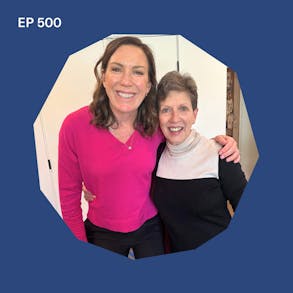
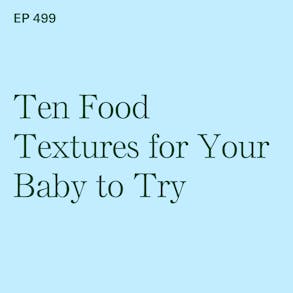
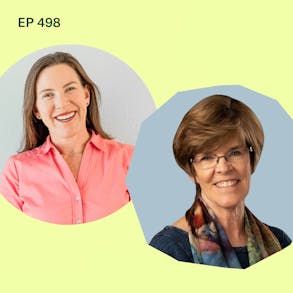
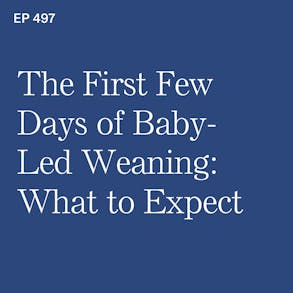
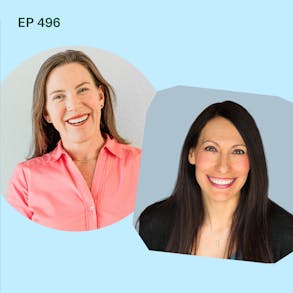
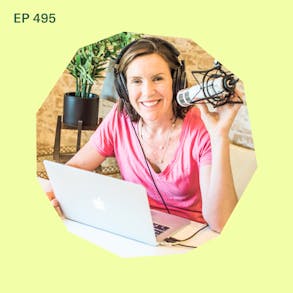
GILL RAPLEY (0s):
Well, I think is great about having been led weaning day is that rather than see the start of solids as the milestone, what we'll see is achieving six months of breastfeeding or formula feeding exclusively as being the milestone. That's the really great news is that our babies have had that nutrition for six months and now they're ready to embrace something different. Do you know what Katie? I think babies are ready to eat solid food. When they eat solid food, what we do is we give them the opportunity and they show us it's no different than when is your baby going to be ready for walking? You can't predict that months in advance and write it on the calendar. But what you do is you provide them with that opportunity and he shows you when he's ready is far more than just about your race or your race.
0 (46s):
Not spoon-feeding. It's about sharing family meals. It's about eating nutritious food. It's about discovery and enjoyment. It's about, well, the baby's take on it and at pass it's about respect and trust for babies and their abilities and their instincts.
KATIE (1m 1s):
I'm Katie Ferraro, registered dietician, college nutrition, professor and mom of seven specializing in baby led weaning here on the baby led weaning made easy podcast. I help you strip out all of the noise and nonsense about feeding, leaving you with the competence and knowledge. You need to give your baby a safe start to solid foods using baby led weaning Today a very special day. It is the first ever national baby led weaning day. That's right, July 1st, officially registered as the national baby led weaning day. Now you might be wondering why.
KATIE (1m 43s):
Well, July 1st is the exact six month point in the calendar year. So if your baby was born on January 1st on July 1st, your baby will be six months of age. And the point of baby led weaning day is to celebrate this milestone whereby your baby is old enough to start solid foods safely with baby led weaning. Now, of course we know six months by itself is not an indicator that your baby is really ready to start solid foods. There's some other nuances involved, but I registered national baby led weaning day to really drive home.
2 (2m 12s):
The point that waiting until your baby is ready to sell feed. And that happens around the six month mark, six months. That's key for BLW success. The whole impetus for baby led weaning day actually stemmed out of a conversation that I had with Jill Rapley. Now, Jill Rapley is the author of the original baby led weaning book. She's the founding philosopher of the baby led weaning movement. And we were doing another interview together, all about debunking BLW myths. And so every single myth that I would bring up, she would start her answer with, well, that myth stemmed from an era when we used to start solid foods with babies when they were three or four or five months of age, basically everything that people think that can go wrong with baby led.
2 (2m 55s):
Weaning only happens if you start too early. So we wanted formalize a way to really drive home. This notion at six months of age is when you start BLW. So again, if you're starting January 1st, when your proverbial baby was born, then exactly six months later is July 1st. So that's why it's national baby led weaning day on July. First. I needed to make sure that Joe Rapley was going to be on board with his idea. She loved it. She wants to help celebrate it. So today Jill Rapley is joining me on the podcast to celebrate national baby led weaning day because it's official. It's a thing. So happy national baby led weaning day and with no further ado, here's Jill Rapley. Well, Jill, thank you so much for joining us on the podcast for this very special episode about baby led weaning day.
0 (3m 41s):
<inaudible> thank you for asking me now. I know you're
2 (3m 45s):
Not one for the spotlight, so I'll keep it brief. But basically we officially registered July 1st as national baby led weaning day in the United States in order to highlight the importance of waiting until the baby is six months of age and showing the other reliable signs of readiness to sell feed before starting solid food. So July 1st, we looked at the calendar year. That's the point where a baby let's say theoretically, born on January 1st on July 1st, they would be six months old. And you have been an advocate for waiting until the six month mark. So it was curious if you could tell us why is it so important to wait until the baby is six months of age in order to start solid foods?
0 (4m 30s):
Well, and he would have lots of evidence now that there's no benefit to starting earlier and it may increase the risk of infections and other illnesses, especially for breastfed babies, because it's likely to replace some of what should be breast milk. And that's on me. It's possible. It also increases the risk of obesity and simply the baby's digestive and immune systems are robust enough and ready enough to cope with other foods and to digest and effectively. So it's a bit of a waste of time, really doing it before six months. Plus of course, with baby led weaning in mind, self-feeding just, isn't possible before, around that age babies, just to image to it, to do it. But also if you all gone to introduce solids before six months, it's going to have to be spoon-feeding.
0 (5m 17s):
And that means the baby's not really in control of what's going on and how much they're taking. And it's so easy to, to give them too much. Well, anything more than nothing is too much, isn't it? That, that age plus those sorts of foods, you're going to be giving unknown nutrient dense. The most nutrient dense food is breast milk or formula. And so if the baby's likely to take the less of that in favor of what's some carrot or apple sauce, that's not going to improve their nutrition. It can also mean babies get stuck on purees for too long because you then have to make the decision to move on from purees. Whereas if you don't start them in the first place, because you wait a bit longer, then you don't have to make that decision. And finally, I guess it sort of avoids the risk that there's going to be a too rapid changeover.
0 (6m 3s):
If you start earlier, then the kind of want to finish earlier and really babies should be having a decent amount of breast milk or formula for at least their first year. So quite a lot of reasons, really,
2 (6m 14s):
Exactly, and starting too early also increases the risk of choking. As we know, since the baby's not physiologically ready to swallow and parents are so worried about choking and said, the one of the most important things you can do is wait until the baby's actually safe to swallow anything except breast milk or formula. And we know that's not till after six months of age.
0 (6m 33s):
So really important point as well.
2 (6m 35s):
Historically, the age of starting solid foods for babies has shifted wildly. I know we had Amy Bentley on the podcast. She wrote the fabulous book, inventing baby food, and she's a researcher from New York university. And there's this beautiful table in her book showing how over the decades, the age at which doctors recommend introduction of solid foods has shifted so wildly. At one point it was as early as six weeks of age, parents were being advised to start feeding foods besides breast milk or formula mindblowing. So I was curious if you could tell us what it was like when you were starting out as a health visitor in the earlier parts of your career, what was the recommendations then?
2 (7m 16s):
As far as when babies should start solid foods, and then what was your experience out there on the front lines regarding these babies and their readiness to sell feed prior to six months of age?
0 (7m 27s):
I feel really old when you asked me that it's like, when my kids said, what was it like in the olden days? Mommy, actually, we, I was back in the mid seventies when I qualified at the health visitor. And at that point, the U K was just moving from a three month starting age to four months. And what I find interesting as I look back and did it at the time was that health professionals and parents were struggling to make that shift because all of the signs of readiness to solid food that parents have been told up to that point related to babies three months old. So they were told, wait for this, if your baby is sticking his fist in his mouth and dribbling a lot, then that shows he's ready for solid foods.
0 (8m 8s):
I mean, it's just crazy. Those were signs that he was three months old. That's all they were, but what's really sad is we didn't learn all that. And when we came to shift from four months to six months, we was struggling again to deal with the fact that most of our signs of readiness with just signs of being four months old. So it's interesting, but that's where we were. Then as soon as that four months came in, I think that was officially from about 1974 in the UK. Actually it was four to six months. So six months was always in there as a possibility. It just wasn't really acknowledged. And, and not many people followed that. There was also this idea that as long as you picked a time between four and six months, it would be okay. We find fruitful for whichever baby anytime would do what actually, what the advice meant was that some time at point between when he's four months and when he's six months, your baby will be ready and the next baby might be ready at a slightly different point, but that never kind of got into the general consciousness.
0 (9m 7s):
And of course, most parents, most health professionals, what came to do it at the earliest opportunity. So it kind of the rule of thumb became four months. Now, 3, 4, 5 months, babies are not ready to self feed. So it had to be around purees. And what was interesting was that alongside this, I was carrying out developmental checks because the health visitor in the UK does a lot of the things that a pediatrician would do in the states. So developmental surveillance and immunizations and so on. And I was carrying out these checks on six month old babies to assess their development. And guess what we look for, we look for baby who could sit up, reach out, grab things and take them to her mouth.
0 (9m 48s):
Well, those were all self-feeding behaviors. Then now what we see is the signs of readiness facility food, but we didn't get that then because they were already on solid food or at least you're right. So, you know, when I look back, that's exactly what these babies were trying to show us well, they did see as well, was known to have problems, usually between seven and nine months, when parents would say the baby was suddenly pushing the spoon away, refusing certain foods, or, or if they were allowed to feed themselves with finger foods, they were kind of over stuffing their mouth, or they were struggling to move on to the kind of second-stage dinners, which had lumps in them. And all of those things seem to be sold if we just let the baby feed themselves.
0 (10m 28s):
So then at weaning way back then I didn't have a word for it. And it was only kind of used as a, as a sort of answer to a problem, but that was the very beginning of it.
2 (10m 38s):
Well, part of wanting to establish July 1st as BLW day is around this idea that we celebrate so many other milestones of a baby's development. Like every month, you know, parents are taking pictures, but for whatever reason in Western society, we tend to kind of gloss over starting solid foods. And we don't really celebrate it as a milestone that it is, and I think should be recognized as, so I know I was a peace Corps volunteer in Nepal for two and a half years after college. And I loved being invited to my hint. I lived in a Hindu community and my neighbors and friends of families would have a rice feeding ceremony when their babies turned six months old. And I thought, at least in the U S we have nothing similar to this. And now that I've been working as a dietician and specializing in baby led weaning for a number of years, I think, why not?
2 (11m 24s):
You know, why don't we celebrate this? And I was curious, do you think we should be celebrating this transition from breast milk and or formula toward solid foods, more so in our Western food culture and how can baby led weaning day help achieve this?
0 (11m 38s):
Yeah, I, you know, I think it's really lovely to celebrate the beginning of a new section, a new episode in a baby's life. I think that's great. And you're right, that we haven't tended to celebrate it. This, on the other hand, we have had a sort of a race to do it as early as possible, but that's a slightly different matter. So what I think is great about having David weaning day is that in a way, rather than see the start of solids as the milestone, what we'll see is achieving six months of breastfeeding or formula feeding exclusively as being the milestone. That's the really great news is that our babies have had that nutrition for six months and now they're ready to embrace something different. And what they're really ready to do is not necessarily eat other foods quite yet.
0 (12m 22s):
I mean, some are already at six months, some take a little longer, but they're ready to be invited to the family table to become part of the family mealtimes and to really share. So it's, it is like a sort of Rite of passage. If you like that, they're there. They're going to be now part of family mealtimes. And that's what I think is really exciting. And we're going to give them the opportunity to show us what they can do. So that's how I see it. I love it. Yes.
2 (12m 47s):
And I think, you know, we can change the narrative and the discussion. And I do agree with you that part of the underlying problem is this race to do everything first, right? We live in this hyper competitive parenting world where my baby walked at nine months. Well, my baby can read at 12 months and I'm being facetious, but not because there are parents who literally brag about starting solids so early. And I just feel terrible because it's such so unnecessary, as you mentioned, but putting anything in a baby's mouth, including a spoon can be a choking hazard. And yet, so, so many of these practices are actually dangerous. So I, I did really want to call attention as part of baby led weaning day two, this notion of how important it is from a developmental standpoint, a nutrition standpoint, a safety standpoint to wait until the baby is six months of age and showing the other reliable signs of readiness to eat.
2 (13m 38s):
And that's what I wanted to ask you next, because so many parents are so excited to start solid foods. They may attempt to do this before their baby is ready. We hear about these, and I love your language, reliable signs of readiness to self-feed. Could you share what those are? Jill,
0 (13m 56s):
Katie? I think babies are ready to eat solid food when they eat solid food, right? What we do is we give them the opportunity and they show us it's no different than when is your baby going to be ready for walking? You can't predict that months in advance and write it on the calendar. But what you do is you provide them with that opportunity and he shows you when he's ready. Interestingly, if you look at it the other way round, imagine trying to prevent a baby from walking that would seem cruel and weird. And yet we have that opportunity, or we have that possibility of doing that with solid feeding. If we take that away and give babies the opportunity that gun to do it, that's so curious about the world.
0 (14m 37s):
They want to test stuff out and then naturally wants to use their mouth to explore the world. So they're going to discover solid foods as long as we let them do it. I think the point that we've missed in the past is that exploring food, handling, touching it, tasting it, smelling it, squishing it, munching it, all of that naturally comes before actually eating it. I think because in the past, it's all been about when do babies need other foods, because we thought we had to make that decision for them. And then somehow get it into them. It's all been around food. And actually for me, always that the real exciting bit has been about development and what's in it for the baby and how they just want to engage.
0 (15m 20s):
So now that we know that they really don't need it before six months, and we know that it's six months, they're ready to reach and grab it. Then we don't have to worry about the need for food. We just have to offer the opportunity to explore. So for me, the reliable signs of readiness to engage with solid foods, whether or not that means eating them are the ability to sit up right, steadily enough, to be able to reach out without toppling over. But somebody still needed a little bit of support around their hips. That's fine able to grab things using that whole hand, not the fence, the grade that comes late, but with their whole Palm and being interested in bringing things to them out. That's it. The old signs we were told about, which as I mentioned, kind of relate to being four months old, rather than them being ready for anything in particular things like waking at night or watching parents eating that.
0 (16m 11s):
They're just things that babies do. They're not about a sign of anything other than being a baby and probably being around about four months. Although of course we know that breastfeeding babies are probably not slept through the night at all by then anyway, why would we expect them to then this kind of always been issues around weight. If your baby's a certain weight she's ready for solids, or if he's actually not heavy enough, he's ready for those really relevant. Again, the food babies need in the first six months is breast milk or formula. The other one that's always bugged me is the tongue fast reflex show you how to look out for that. If you're going to do something to a baby who might not be ready, but number one, you're not going to do it to him. If it's baby led weaning, he's going to do it himself. So he's not going to confused about whether his Tom frost is present or not.
0 (16m 54s):
And second of all, the tongue trust has as always gone by six months, unless you have a baby who really is not developing. Typically, it's just not an issue. And I guess the last one that we're often told is that we need to demonstrate the babies are ready to swallow food before we give them food. And that, excuse me, how can you demonstrate? They're ready to swallow it without giving it to them. So like, if you have to test for it, that's weird too. And as I think of kind of, my care is the swollen comes later. It's the exploring and the engaging that matters.
2 (17m 26s):
I love that you pointed out the signs of readiness to feed, even though they're not going to be eating very much. Cause that's the first thing parents think is parents are so hard on themselves. They say my baby is not eating anything. So I must be doing something wrong. Now I must do it to the baby. And I think part of celebrating this waiting until six months of age is also acknowledging that this doesn't happen overnight. You've got about six more months to give your baby the opportunity to slowly learn how to eat and gradually replaced the nutrition that they're getting from milk, be that breast milk or formula with food, but it doesn't happen overnight. Their iron stores don't run out overnight. They don't know how to eat every texture. They can't eat pieces of lasagna, very proficiently and without a mess immediately at six months of age.
2 (18m 8s):
And that's not the point either. So I really want to drive home. This message of waiting is key, and then being patient with your baby because they're learning a very new skill, right? They've never had anything in their mouth except breast milk or formula. So let's back off and give them a little bit of time to learn what to do with it and how to do things with it. So they can grow and thrive on foods. As we know babies can, if we just let them do things at the right time,
0 (18m 32s):
Do you know what part of the joy for me of watching babies learn about food? Is there a discovery that actually it does fill the belly. That's not how they start out. That's part of what they learn as they go along. They're motivated by curiosity, not by hunger so that we've got things in the wrong order. And now babies are showing us how to get it right. Jill, your
2 (18m 54s):
Book, that baby led weaning book that you co-authored with Tracy murcott, it's called baby led weaning the essential guide. It was recently totally overhauled for the 10th anniversary edition. I always refer to it as the original baby led weaning book, because of course you are the founding philosopher of the baby led weaning movement. I recommend your book to my audience, but I'm curious to know, why do you think it's important for parents and caregivers to read your book before they start solid
0 (19m 22s):
Foods? Well, I think it would be great for parents who are not sure about baby led weaning or I've never heard of it even to read the book, just to find out if this might be an option for them and their baby, but even for folk who have heard of baby led weaning and maybe have already decided, it's a great idea. I'm just concerned that it's kind of everywhere now. It's all over the web. That's great. It's in many different countries and a lot of people are writing about it and talking about it, but everybody has their own take on it. And that's great because people adapt things to work for their family. But if they then present that as this is baby led weaning and the person who reads that is start from a different place and has a different understanding perhaps of what it is from what they would have if they read our book.
0 (20m 8s):
So I like to think that people would kind of go to the horse's mouth to get the really accurate account of what the concept is about and why it's a good idea and how to do it and what to expect. We cover all those things. But we also really explain it that it's far more than just about purees or not purees. And then spoon-feeding, it's about sharing family meals. It's about 18 nutritious food. It's about discovery and enjoyment. It's about the world. The babies to take on it is at heart. It's about respect and trust for babies and their abilities and their instincts. And as several people have said to us, some of the concept goes way beyond eating into issues of autonomy and independence in the baby's side.
0 (20m 53s):
So I would love people to see that whole big picture before they just decide I'm not going to explore race. You know? So I think we're the only place really where you can get that. And then, then from that starting point can adapt. Whatever's going to work for you and your baby, but I think you need to kind of know how it originated to really understand what it's about. Well,
2 (21m 16s):
Thank you so much for all of the work that you have done to help us get things in the right order. So that all of us in the feeding world can also remind parents that, you know, this is a progression. These things happen in order, we need to step back and let babies do their job. And I think it actually gives parents a lot of relief. Like, you know, there's a lot going on in the first six months. You don't need to try to layer solid foods on top of everything at three or four months of age. So do wait until your baby is six months of age and showing, as Jill says, those reliable signs of readiness to sell feed. Jill, thank you so much for your wonderful insight and for helping us to celebrate baby led weaning day, which of course wouldn't be here. If it weren't for all of the amazing work that you have done and continue to do in the field of infant
0 (22m 0s):
Feeding. Well, thank you, Katie. And I do, you know, I'm just so thrilled that other people are taking the Baton and running with it because I just feel I kind of push that baby out and off it goes and it just doing great. What are
2 (22m 14s):
You pointed out about things being cyclical in the world of feeding? Like we did not learn our lesson in 1974 when the UK moved from three months to four to six months. And then when we tried in 2003 to move to six months, the American academy of pediatrics still says in published documentation four to six months of age, and they're doing the exactly the same thing with the introduction of allergenic foods, despite the fact that there's absolutely no research to support four months being a better time to introduce foods in six months. And I think of no offense, Dr. Sitting somewhere saying, you know, four to six months, cause they said it forever. And yet the difference of two months in a baby's lifespan is remarkable.
2 (22m 55s):
It's nothing to you and me, but two months to a four-year-old it's essentially half of their time on this planet. It's massive. It's so important to them.
0 (23m 3s):
Absolutely. Yeah. We just always needed to let babies tell us and we didn't realize what they were capable of doing and what they could show. Well, thank you
2 (23m 11s):
Again, Joel. I really appreciate your time. Okay. Thank you. Well, I hope you guys enjoyed that interview with Jill Rapley, the founding philosopher of the baby led weaning movement, sharing her thoughts on national baby led weaning day, which from here on out is official on July 1st, every year. We're going to be celebrating BLW day, but every day here on the podcast, we celebrate your babies. If you guys are just getting started with solid foods, be sure to read Jill Ripley's book. It's called baby led weaning the essential guide. It's the original baby led weaning book. It's authored by Jill and Tracy murcott and it's recently been updated for its 10th anniversary edition.
2 (23m 53s):
So make sure that you're reading the 10th anniversary edition. You don't want to read something prior to 2019. So check out Joel wrapped Lee's book I'll link to everything we talked about in today's show notes, including that book on the show notes for this episode, which is@blwpodcast.com slash one 40 and happy national.
Get baby-led weaning recipes and tips delivered right to your email inbox.